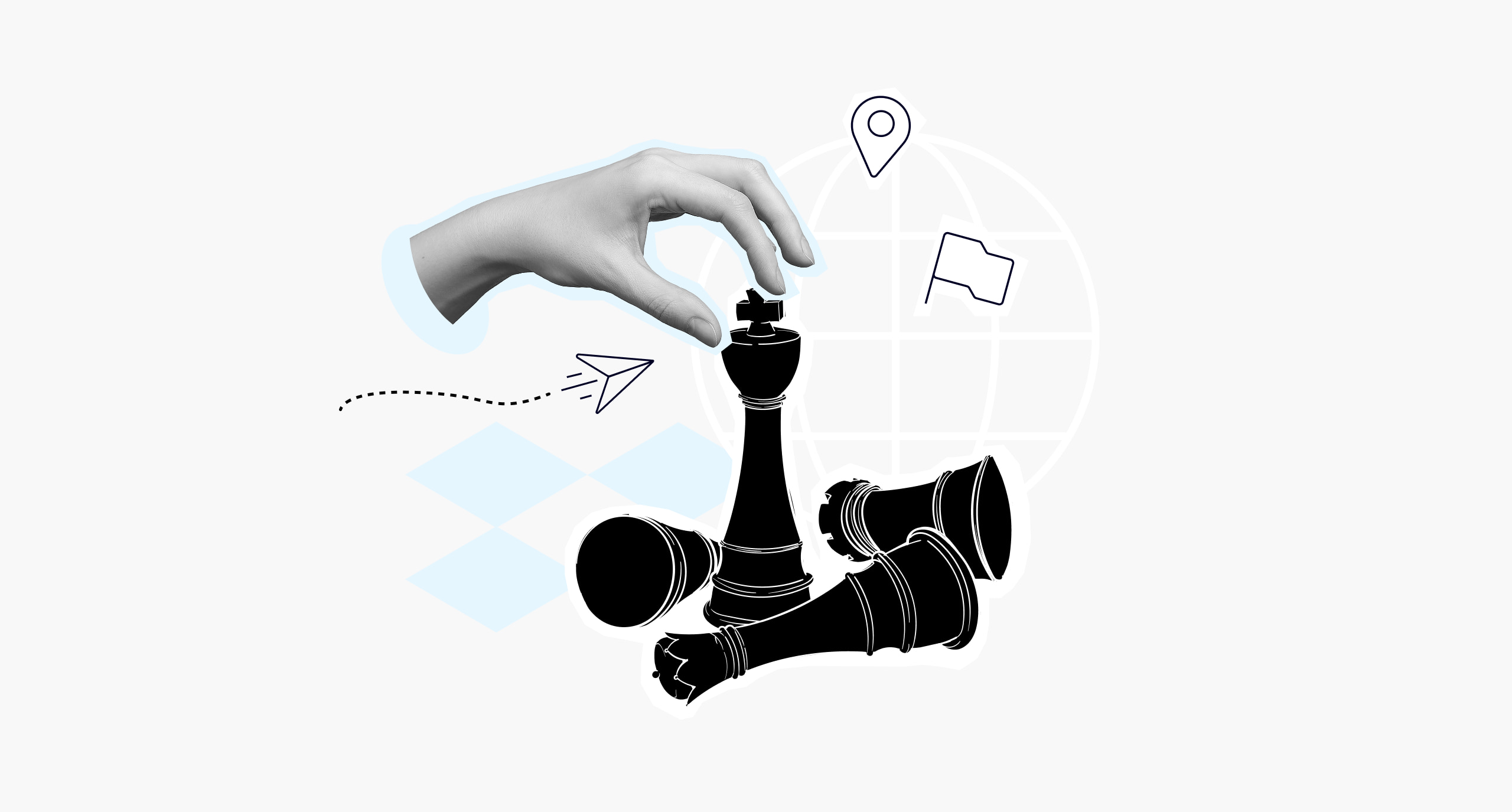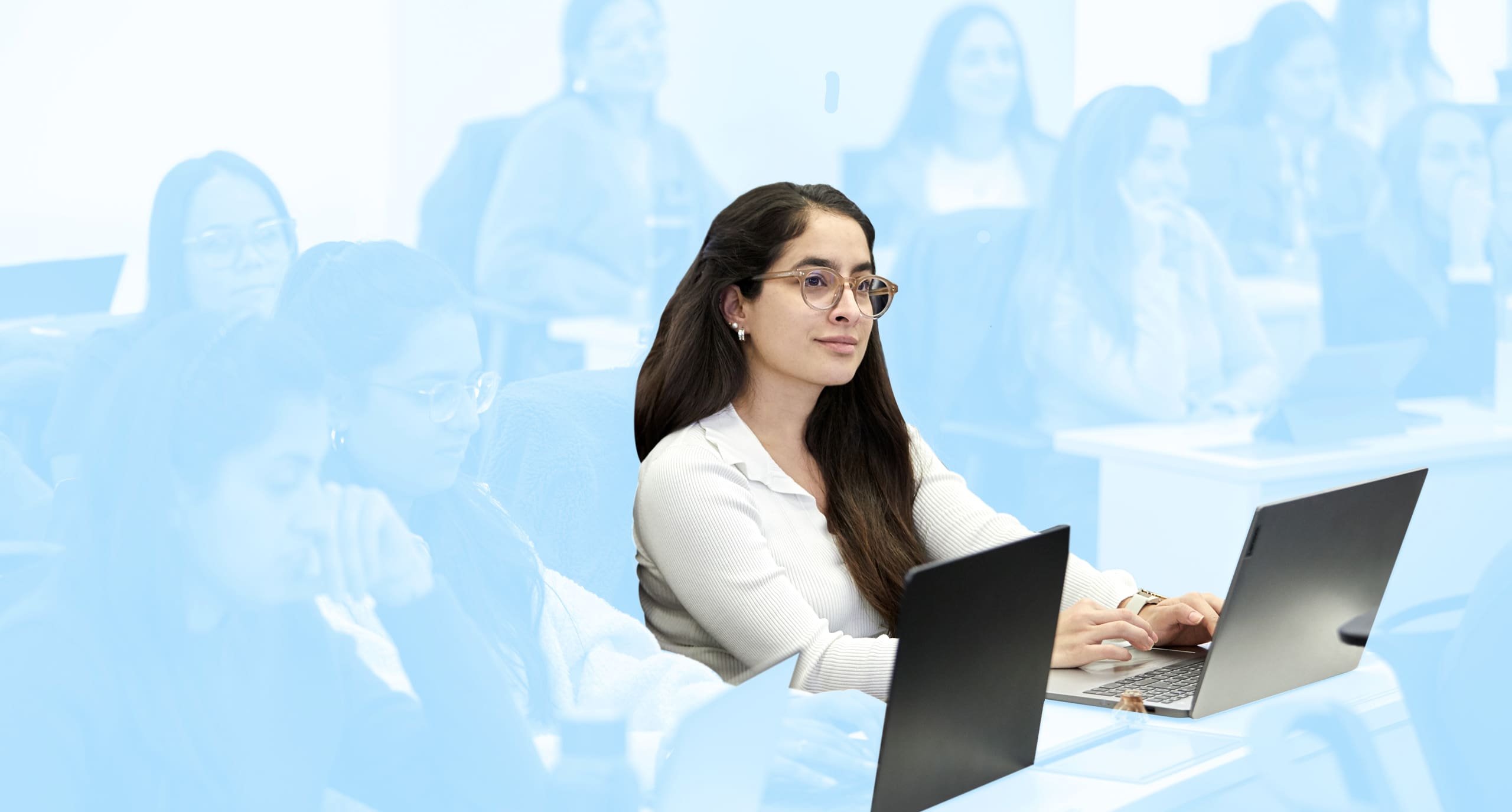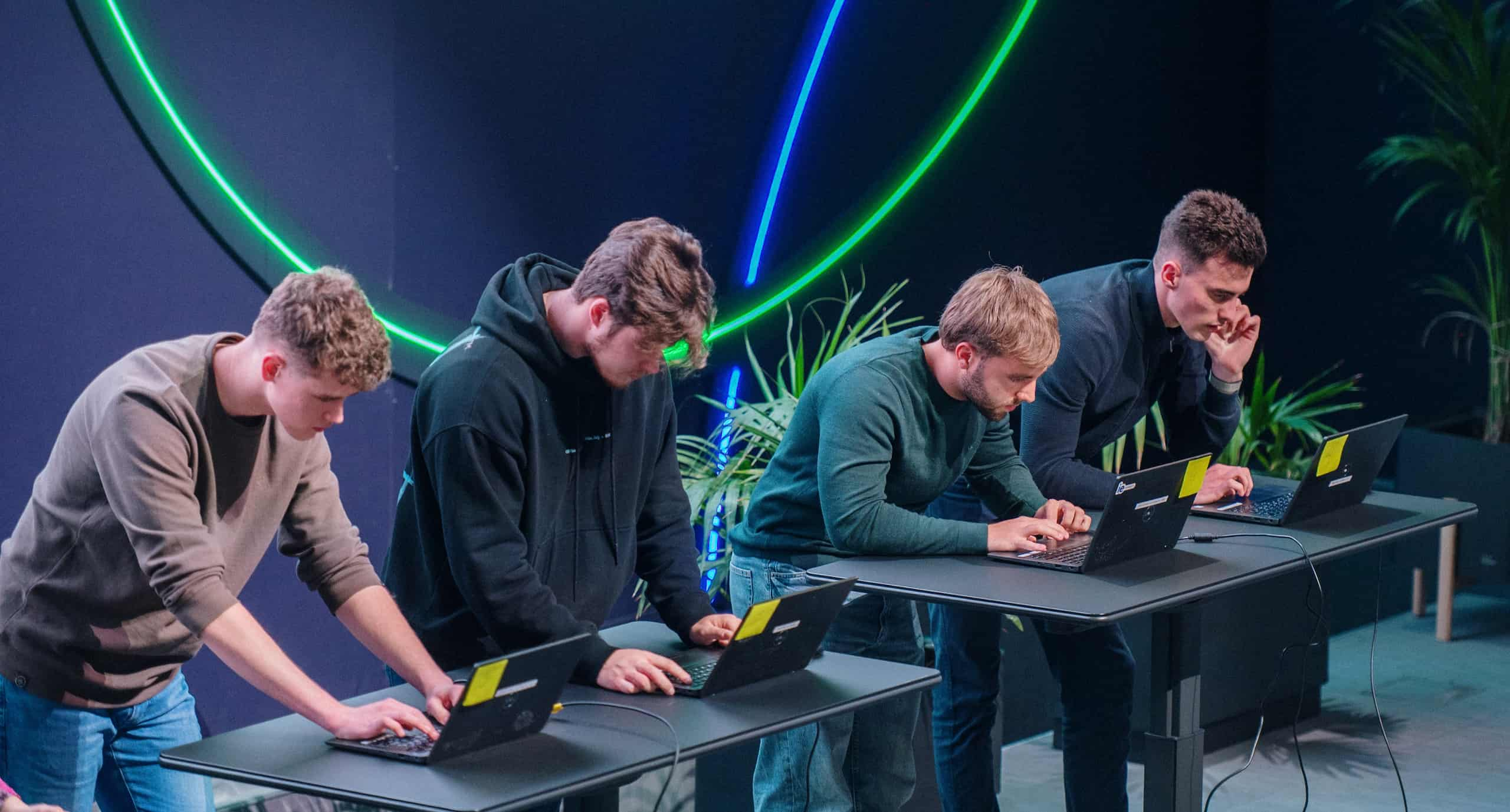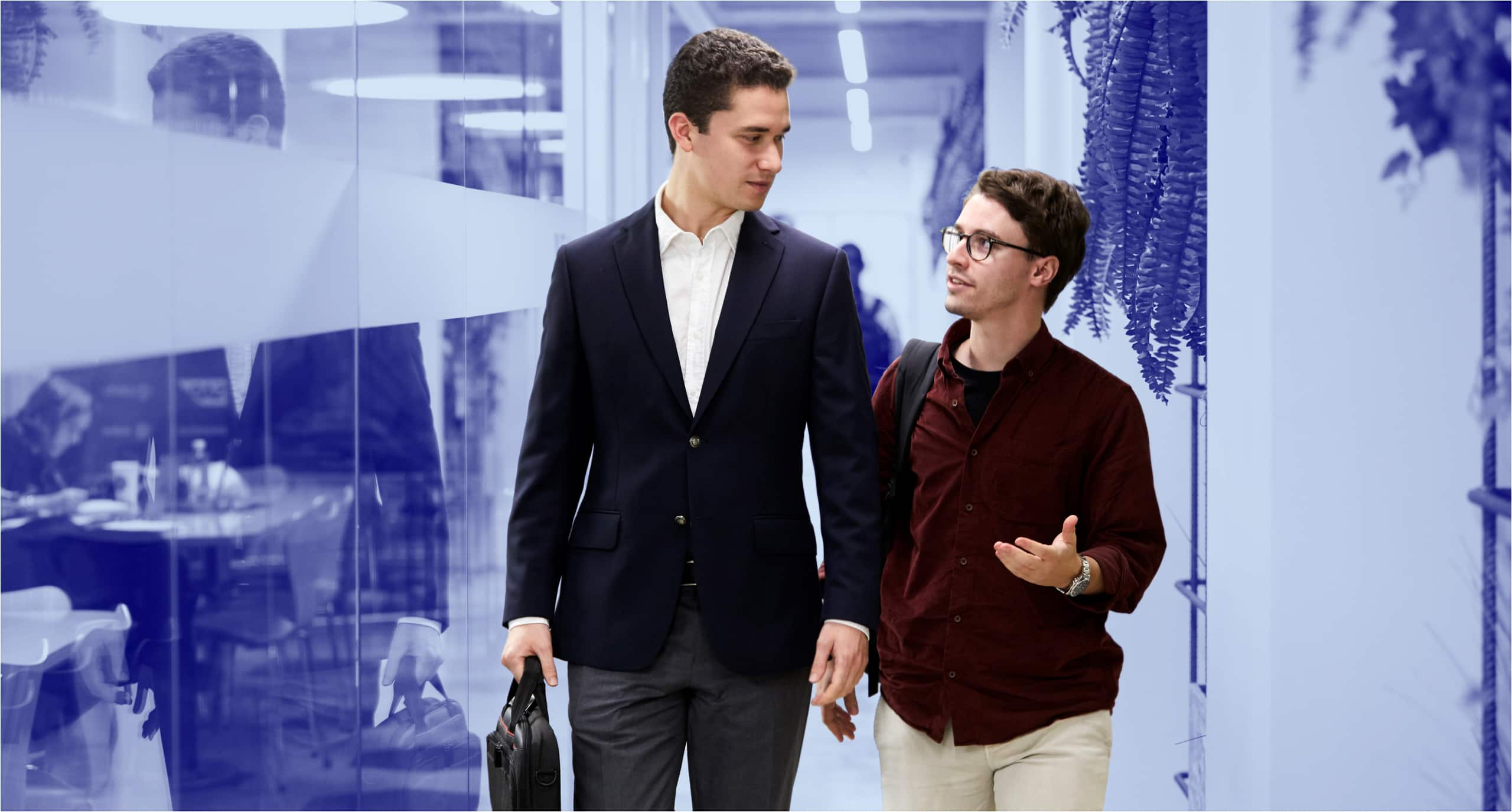Talking to the program’s Academic Director Cristina Vicedo, it’s clear that significant changes have been made to keep it ahead of a changing sector and make it the most complete degree of its kind.
Here we’ll take a look at where the program is going and how it’s changed to enhance the student experience while addressing their critical work/life/study balance. Just as upskilling is always necessary to keep your own professional trajectory on track, so the program has been updated to confront a rapidly evolving sector.
A more strategic marketing focus
The program now takes a more strategic focus, diving into the emerging technologies that are disrupting the sphere. Artificial InteIligence, data and digital marketing have all become central to the discipline, but that doesn’t mean we’ve dropped the more traditional, humanistic elements that remain important in effective marketing and communication.
“Having data today, for me, is super-important. Data from your competition, data from your market, data from the sector you want to move in, from the product you want to launch. But of course, if you’re unable to somehow distill all the data that you receive and adapt it to what you’re looking for and to your needs, what’s the use of so much data?” – Cristina Vicedo
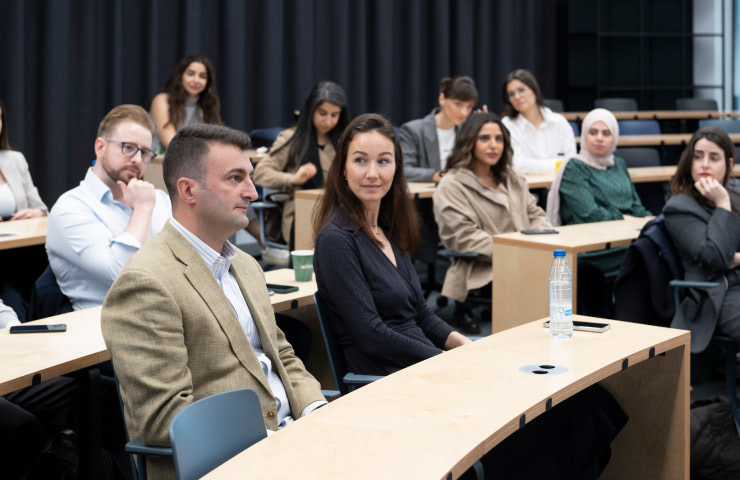
After a foundational first term that covers topics like reputation management and branding, the second term is perhaps the most intensive and rewarding. This is where students comprehensively explore integrated marketing, data visualization and media storytelling, studying “everything they have to learn in terms of planning and strategy development.”
It’s an opportunity to build an extensive, completely up-to-date toolkit to handle complex marketing challenges. This term is designed to ensure that students are well-prepared for the strategic demands of their future roles.
Reflecting the real world
In exploring specialized subjects like internal communications, public relations and ethics in governance, students’ learning aligns with their career goals, whether that’s focusing on sponsorships or improving public affairs strategies, for example. This approach broadens their expertise while aligning their new-found skills with real-world applications.
One thing that hasn’t changed is the extensive professional experience of the faculty, who bring firsthand insights of the realities of the sector to the classroom. This is invaluable insight, because our graduates’ future careers in the industry will see them faced with the challenges inherent in working with a diverse range of clients, stakeholders and colleagues. So the program includes face-to-face periods where debate is encouraged and all students are exposed to differing worldviews and backgrounds, just as they will be in their future careers.
Updating the student experience
Our vision for the Executive Master in Strategic Marketing and Communication goes well beyond changes to its curriculum. With Cristina on board as Academic Director, we’ve made a real commitment to improving the overall student experience by enhancing the program’s practical elements.
During the in-person weeks held in Madrid, each student has a one-to-one meeting with faculty to get to know them better–their family situation, their professional obligations, their motivations for choosing the program. This helps us to help them align their academic and personal ambitions with their plans for their professional futures, and focus their program journey accordingly.
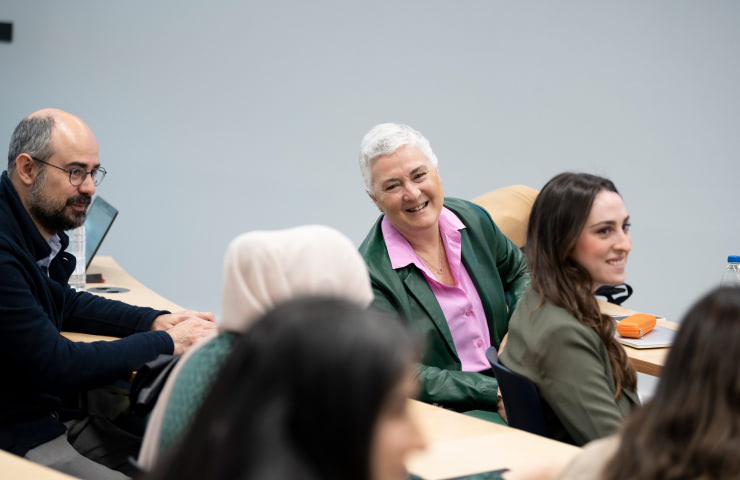
Moreover, though it’s a predominantly online program, it’s also a journey to each student’s next best version of themselves. So it’s important that the institution provides a safe environment for our entire community, whether online or in person, and that nobody misses out on the benefits of mixing with our diverse community in person.
Balancing work, life and study
Maintaining a healthy work-life-study balance can sometimes be challenging for master’s students. Cristina emphasizes the importance of proactive engagement and effective time management; students must be willing to dedicate time and effort, balancing their professional responsibilities with academic demands. But the program’s flexible online learning options support this balance, so students can integrate their studies with their professional and personal lives
Our face-to-face periods are important. There are three, one of which is not mandatory, but normally everyone comes to all three. We have one-to-one meetings with students to get to know a little about their personal situation; if they have a family, if they live alone, what they want to do, why they’re doing a master’s, why they chose this degree. For me it’s particularly important to understand what’s behind a person who is already working wanting to do a master’s. And it’s important that this is a very safe environment for students, even if they want to pursue the program online. – Cristina Vicedo
The updates to this program reflect a deep understanding of the needs of modern professionals. Through continuous evolution and a focus on both the student experience and career readiness, it ensures our graduates are prepared for tomorrow’s marketing landscape and poised for future success.
Highly experiential
Reflecting the importance of experiential learning, the program integrates highly practical classes such as Media Relations. This is a chance for students to practice their public speaking, receive constructive feedback and learn how to handle press interactions confidently. Practical experience is in high demand by employers, and therefore, students. So the program provides ample opportunity to learn and enhance the real-world skills that will stand our graduates in good stead in their job search and their later careers.
And it doesn’t end there; in their final projects, students tackle real-life marketing and communication challenges posed by real companies. This allows them to work as consultants, presenting their solutions to industry leaders. As well as providing valuable sector experience, this often opens doors in the professional world, as they’re face to face with some of the sector’s leading recruiters.
“Nowadays students, especially graduate students, seek much more experiential study and real cases. I would say 70% of our faculty are working at the same time as they teach. Why? Because we look for professors who teach their classes the reality of the sector.” – Cristina Vicedo
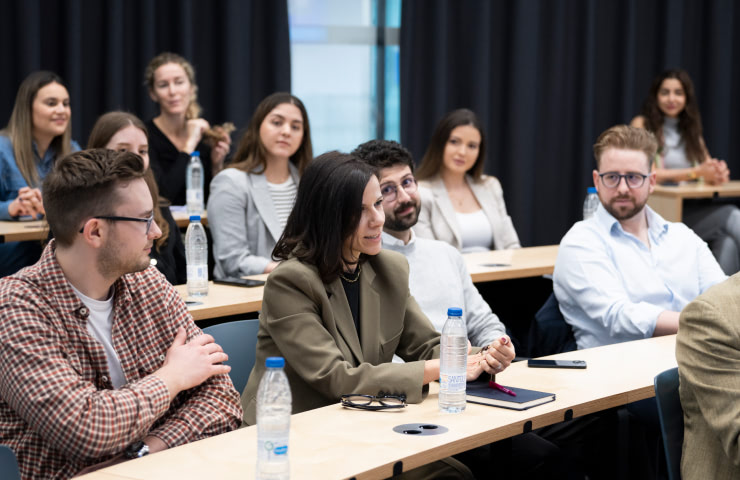
Skills for impact and the future of the program
Looking to the future, Cristina tells us that while the content of the Executive Master in Strategic Marketing and Communication may evolve, our future alumni’s takeaways from its updated content will always be immediately applicable in the real world. New courses in topics such as Creative Thinking, Team Working, Disruptive Martech and Storytelling for Brands reflect emerging trends in a marketing and communication industry with a highly dynamic future.
And if there’s any doubt that these new skills provide immediate career impact, the program’s final projects provide ample evidence. Many of the students undertake their final project for their current employers, proposing solutions to contemporary challenges their organizations are facing. The Executive Master in Strategic Marketing and Communication therefore adds value to our students’ employers as well as the participants themselves—so much so, that several of our graduates have secured promotions on completing the program.
By empowering them to put their learnings to work immediately, IE Business School ensures our graduates have the cutting-edge skills and practical experience to accelerate their career success.
Transformative learning
If you’re considering advancing your career in marketing and communication, this is a comprehensive platform to enhance your skills and propel your professional journey. With a strategic curriculum, a focus on experiential learning and a strong emphasis on achieving a healthy work-study balance, it’s designed to provide a transformative learning experience.
Ready to elevate your career without disrupting your professional life?
The Executive Master in Strategic Marketing and Communication can help you create an impact in your career and within your organization.

